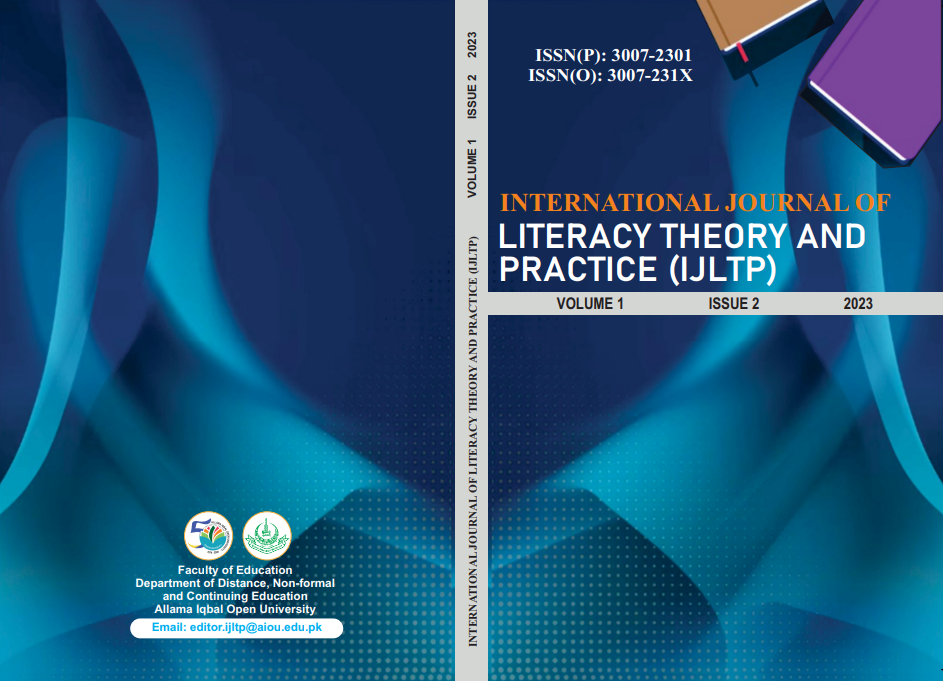Conceptualizing Importance of Artificial Intelligence Literacy from the Perspective of Distance Learners
DOI:
https://doi.org/10.30971/ijltp.v1i2.2273Keywords:
Literacy, Artificial Intelligence literacy, Distance Education, Distance LearnersAbstract
AI literacy encompasses proficiencies and skills to use AI applications and tools, considering them critically and interpreting their context and underlying principles. While students, as digital citizens, possess the ability to harness AI for enhanced learning outcomes, there remains a potential gap in utilizing suitable AI techniques effectively within specific learning contexts. This study focused on conceptualizing artificial intelligence literacy from the perspective of distance learners. By using a quantitative approach, a survey was conducted on distance learners of teacher training programs (B. Ed and M. Ed) from AIOU, Pakistan. A randomly selected sample of 104 students was approached through an online survey. Based upon the objectives of the study, the researcher developed a questionnaire with extensive effort by focusing on the psychometric properties of the scale and sought expert opinion on it. Findings of the study indicated that most of the respondents agreed that distance education taught by AI has a high impact on students learning and it indicates a positive response towards the students. Gender differences on t-test indicated no difference in conceptualizing role of AI literacy in their education. This study indicated the overall effectiveness of AI in education. effectiveness of artificial intelligence videos in education. It is recommended that in distance learning scenario, artificial intelligence may be encouraged to be used in the learning process.






